7 Personality Types Of Golfers And How To Deal With Them
Emma Booth highlights the different personality types that we meet on the golf course and how best to deal with them so they don't affect your game
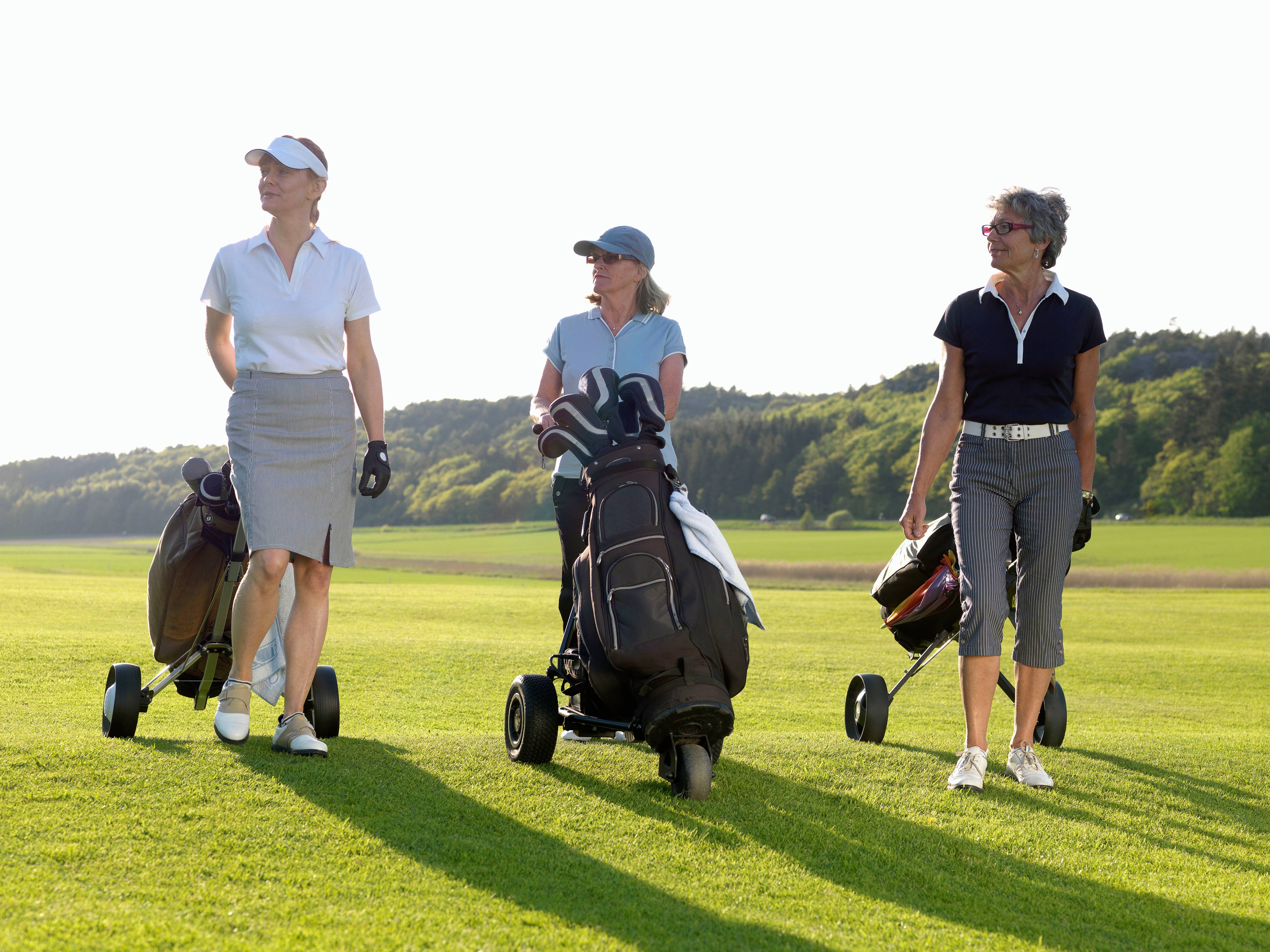

So much time and energy is often spent chasing improvement through working on different areas of the game, and nowadays we even acknowledge the importance of having good psychology on the course. However, there is one thing that can massively impact success that is rarely talked about and that is, how to deal with the many different traits of playing partners.
'Playing partners?’ I hear you say, yes playing partners. The people we choose, or often don’t choose to play golf with, can have a huge effect on our ability to get the ball in the hole. Here are 7 potential playing partner personalities that you may encounter on the course.
1. The Slow Coaches
These are the players that are in good physical health, but they get so carried away with chatting, practice swings, checking their yardages and organising their bags, which means they are never ready to hit their shot! Playing golf means they are out for the day, so why would they rush? Pace of play, ready golf? Those are things that other people must adhere to.
How To Deal With A Slow Coach
You could perhaps keep a gumshield in your bag so you can protect your teeth from the inevitable gritting they will do. Alternatively, you can do your best to lead the way by setting the pace of play you believe should be adhered to. Ensure you are always ready when it’s your turn to play, and the odd mention of being mindful of those playing behind can help. This tactic can potentially make you appear slightly anti-social if you are promptly on your way after each shot, but it maybe the nudge a player needs to get a move on. If that fails, you could always casually mention how Georgia Hall said speeding up her play led to great improvement for her golf.
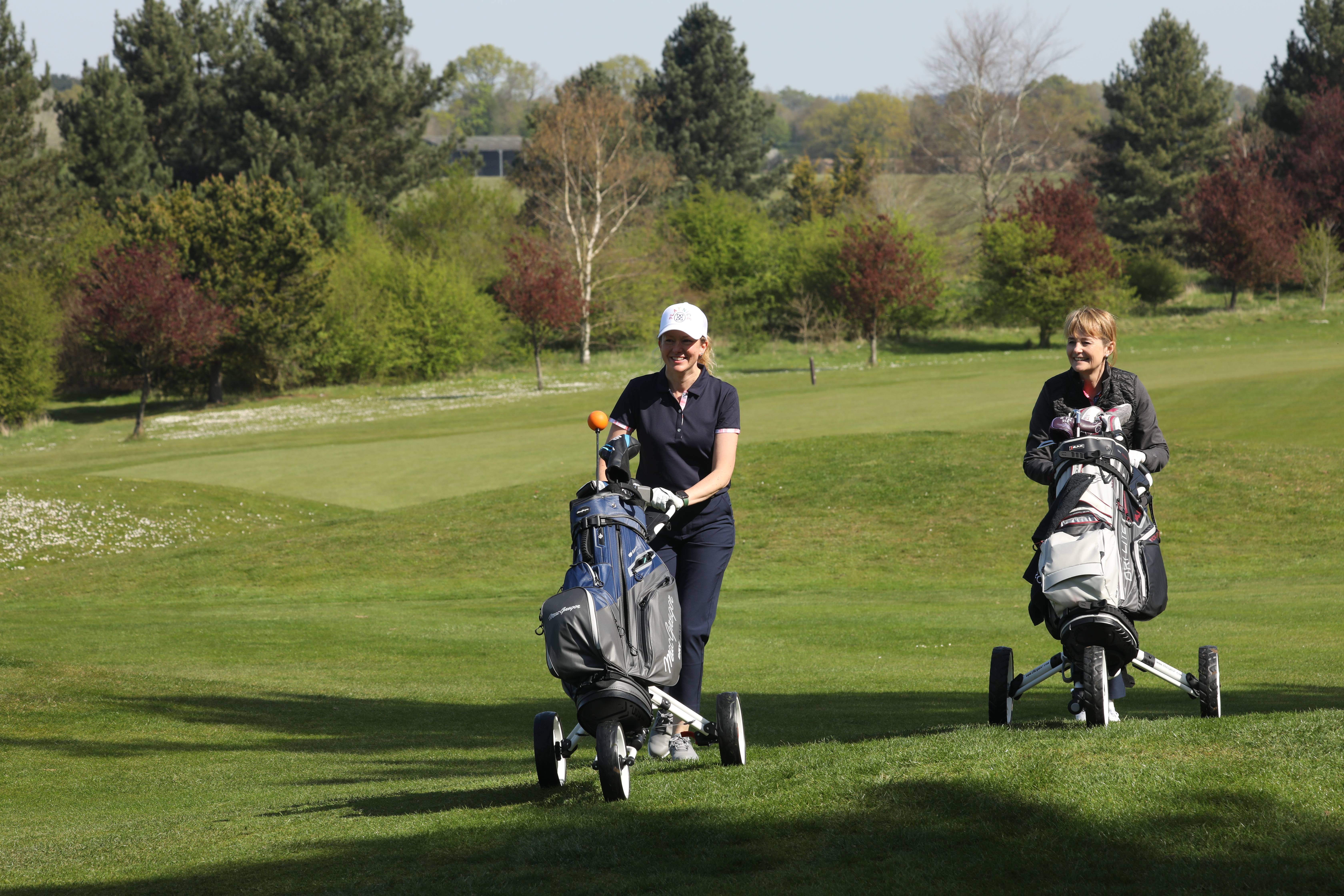
2. The Complainers
Get the Golf Monthly Newsletter
Subscribe to the Golf Monthly newsletter to stay up to date with all the latest tour news, equipment news, reviews, head-to-heads and buyer’s guides from our team of experienced experts.
Complaining is a condition that this golfer is likely to suffer with on and off the course. They are the human embodiment of Eeyore, but at least he was cute! They are the type of person that could get a hole-in-one but complain it dropped in from the left side of the cup rather than the right side. Nothing is ever right, or good enough for them. If it’s not the weather, it’s the condition of the course, if it’s not the course, it’s the time of day the competition is being held, or the surface of the car park. If there is something negative to be said, they will say it, as it’s a way of life for a complainer and most of the time they lack the self-awareness to even know how they are doing it.
How To Deal With A Complainer
Earplugs! Dealing with complainers requires a similar tact as dealing with small children. They want to be heard and their feelings validated. So, early in the round when complaining starts, nod and agree with them without passing too much comment.
Complainer - “The greens are terrible today”
You - “Yes I’ve seen them look better, oh well, same for everybody”
If that fails, you can always ask a question that encourages a positive response. “What’s your favourite hole on the course?”
The complainer will likely return to their modus operandi, so the most important thing to do is not get sucked into their negative headspace.
3. Magic Pencil Enthusiast
Otherwise known as the cheat! Even though you’ve just witnessed them hit 3 shots to get out of the trees, magically they have completely forgotten doing so themselves. Cheating in golf through taking the odd shot off is a far more common problem than people realise. ‘Air shots surely don’t count, and only the good shots do’ is how many people think golf should be scored, but when playing in a competition, every shot and whiff made with intention counts!
How To Deal With A Magic Pencil Enthusiast
There are a few different courses of possible action to take here. You have the subtle approach, which is to gently remind them of the extra 3 shots they’ve had. Or the firmer approach is to take them to one side and gently talk to them. Last resort is to give them the surprise gift of some scorekeeping beads from the pro shop to make life as easy as possible. Be mindful to always prioritise your own game and enjoyment and try not get too preoccupied with keeping an eye on your partner’s ability to count.

4. The Swing Whisperer
Hit a bad shot, don’t worry the swing whisperer is there to tell you exactly why and what you should be doing! “You lifted your head,” “Keep your head down,” “Stay looking at the ball,” or “Your stance is too wide” are just some of the comments you might hear. Swing whisperers come from a good place and are trying to be helpful, but often they are about as much use as an ashtray on a motorbike.
How To Deal With A Swing Whisperer
The best and quickest way to get a swing whisperer to stop dispensing their gems of wisdom is to agree with them, be grateful for their advice, but then completely ignore what they are telling you and focus on your own thing. It puts a stop to them repeating themselves and pecking at you. As a pro with over 20 years’ experience, I can tell you it is very difficult to make swing changes or adjustments in the middle of a competitive round of golf. It would be like trying to revise when you are in an exam room. You are out there on your own, no one is coming to the rescue, so you must focus on getting that ball in the hole with the game you have that day
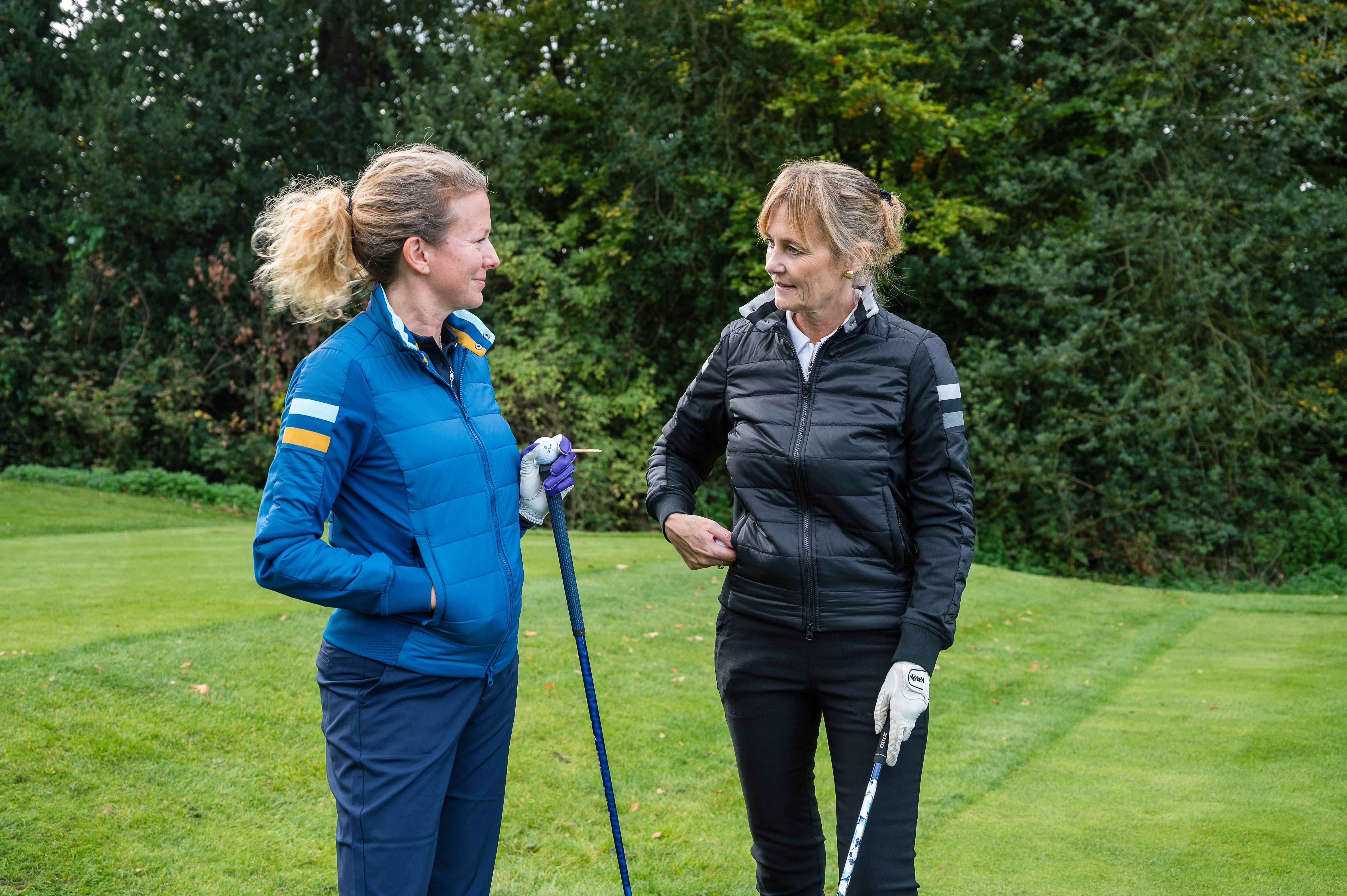
5. The Sulker
Personally, this is my worst type of playing partner. If you have been looking forward to a game of golf all week and then get drawn with someone who believes they should be tearing up the course like a pro and anything less results in a strop, it can easily make a 3-and-a-half-hour round, feel like 10 hours! They seem to completely lack the social awareness of how their behaviour affects others. Sulking on the golf course is usually due to a player’s expectations of how they should be able to play, which doesn’t match the reality of their actual ability.
How To Deal With A Sulker
The most important thing to remember is that their sulking is nothing to do with you, so you must do what you can to ignore their behaviour. Do not be tempted to try and snap them out of it because they can only do that for themselves. Be polite and remain conversational when appropriate, but otherwise completely focus on being out in the fresh air, your game and enjoyment.
6. The Competitor
Sport by its very nature is competitive, but this type of golfer takes it to the extreme. Golf to them is all about winning or losing. If they are not highlighting the stakes of the game or how well they are playing, then they just aren’t having a good time out there. Their competitiveness comes out even more on the greens where ‘gimmes’ are simply not part of their vocabulary. Playing partners who do this really can take the social enjoyment out of playing.
How To Deal With An Ultra Competitive Player
Don’t play their game or rise to the bait of their competitive behaviour. Say well done to them if they hit good shots or score well, but try not to add to the competitive atmosphere and remain unfazed by them. Competitive people need people to actively compete against so they should soon get the message you are not playing ball. If, however they keep pushing your buttons, politely say you enjoy the challenge of the game itself enough without the need to be extra competitive.
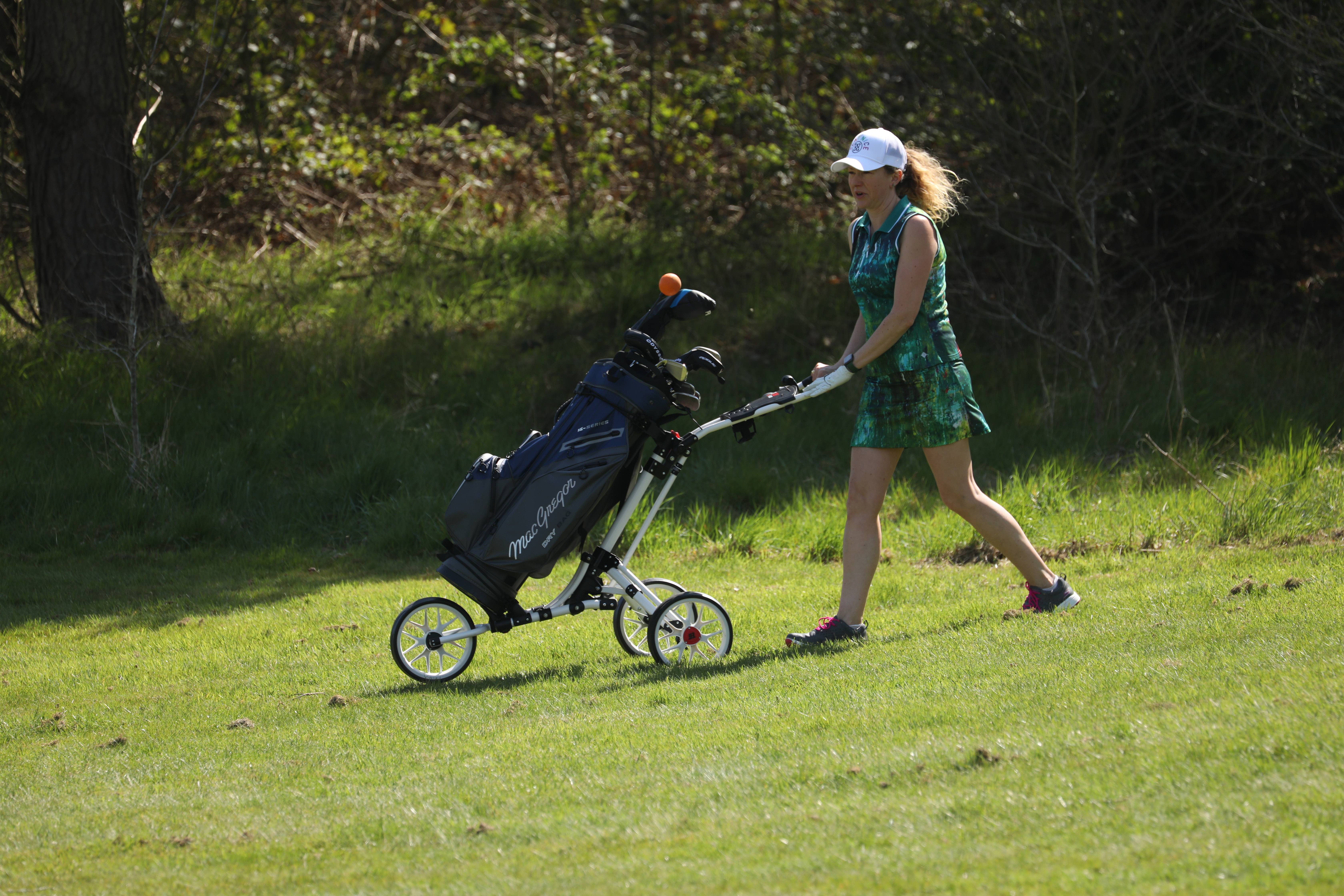
7. The Newbie
Ah, the newbie, we’ve all been there. They are the learner drivers of the fairways. You can normally spot a beginner golfer just from the expression on their face – a deer in the headlights! Not only do they have to concentrate intensely on making contact with the ball, they’ve got to walk quickly, leave their bag in the right place, make sure they follow the seemingly endless rules of etiquette, and on top of all that, somehow keep score. It’s hugely overwhelming, even those who prepare as much as they can still feel in the deep end for those first few competitive rounds out on the course.
How To Deal With A Newbie
While we can all completely empathise with the newbie golfer, it is very difficult to find the balance of helping and guiding them around without losing focus on your own game. This playing scenario provides the perfect opportunity to practice switching on and off between shots. So, as soon as you park your golf bag next to your ball, switch on to what you need to do, and in between chat, help your new-to-golf partner. Yes, you will certainly feel a little more drained than usual, but you will have done your bit to share the joy of golf to someone new, now what could be finer than that?
It is the endless variety of scenarios you can find yourself in that makes golf one of the most unpredictable and entertaining sports to play. Every time you tee it up you just never know what you are going to get. Playing with colourful characters along the way are what all good golfing anecdotes are about. Ultimately, you should always try to be the type of playing partner that you would like to meet and play with!
Emma has worked in the golf industry for more than 20 years. After a successful amateur career, she decided to pursue her true golfing passion of coaching and became a qualified PGA Professional in 2009. In 2015, alongside her husband Gary, who is also a PGA Professional, they set up and now run Winchester Golf Academy, a bespoke 24 bay practice facility offering not only all the latest technology but a highly regarded bistro. Emma is happy coaching all golfing abilities but particularly enjoys getting people into the game and developing programs to help women and juniors start and improve. Her 2022 Get into Golf program saw more than 60 women take up the game.
Emma is a member of TaylorMade’s Women’s Advisory Board, which works to shape the product offering and marketing strategy with the goal of making it the number one brand in golf for women. When not changing lives one swing tweak at a time Emma can be found enjoying life raising her three daughters and when time allows in the gym.
-
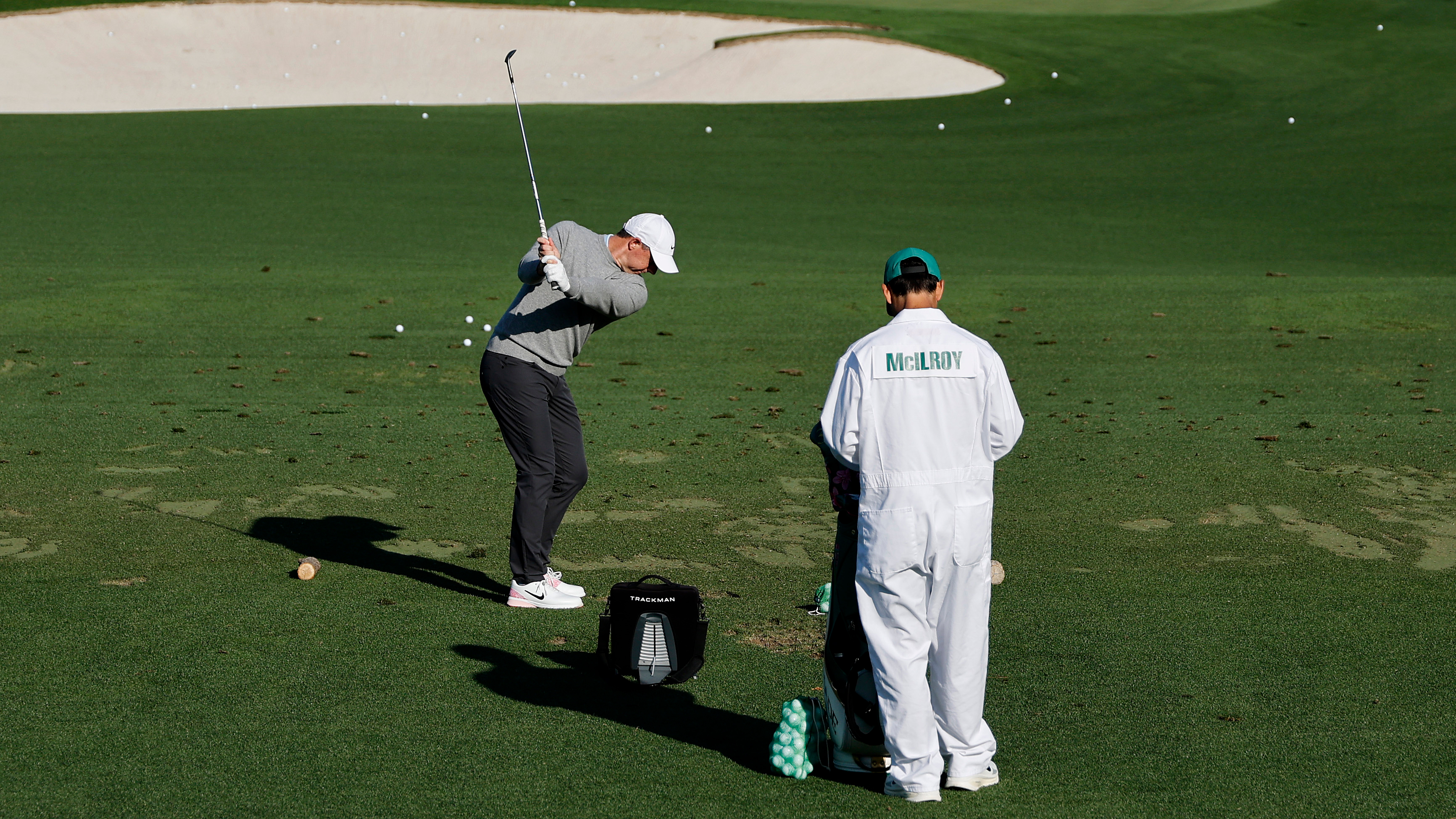 Rory McIlroy Explains His Extraordinary Pre-Round Routine (And It's The Complete Opposite Of Most Amateurs)
Rory McIlroy Explains His Extraordinary Pre-Round Routine (And It's The Complete Opposite Of Most Amateurs)McIlroy shares what goes into his usual pre-round routine at tournaments and what his timetable looks like before arriving at the first tee
By Jonny Leighfield Published
-
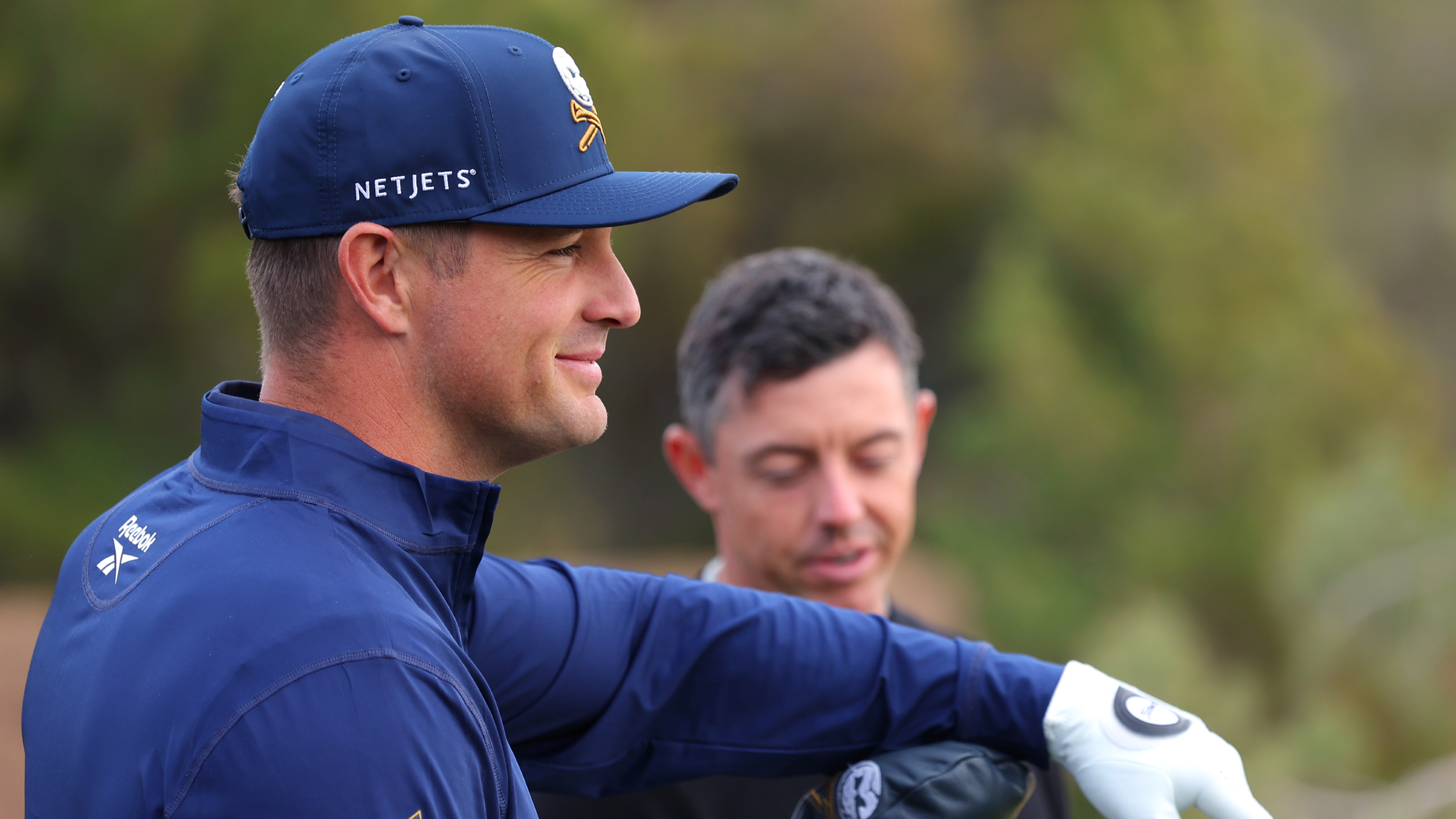 ‘You Kinda Did It To Yourself’ – When Bryson DeChambeau Needled Rory McIlroy Over US Open Battle
‘You Kinda Did It To Yourself’ – When Bryson DeChambeau Needled Rory McIlroy Over US Open BattleMonths after Bryson DeChambeau’s defeat of Rory McIlroy in the US Open, the two met in Las Vegas, where the LIV Golfer had a lightning-quick response to a humorous comment from his rival
By Mike Hall Published
-
 From Body-Baring To Dialed In: Grace Charis Redefines Golf Fashion
From Body-Baring To Dialed In: Grace Charis Redefines Golf FashionInfluential golf content creator Grace Charis launches new apparel brand
By Alison Root Published
-
 Golf Gave Me Confidence... Then Social Media's Toxic Culture Tried To Take It Away
Golf Gave Me Confidence... Then Social Media's Toxic Culture Tried To Take It AwayA young content creator's journey to own her golf game and her voice
By Katie Clarke Published
-
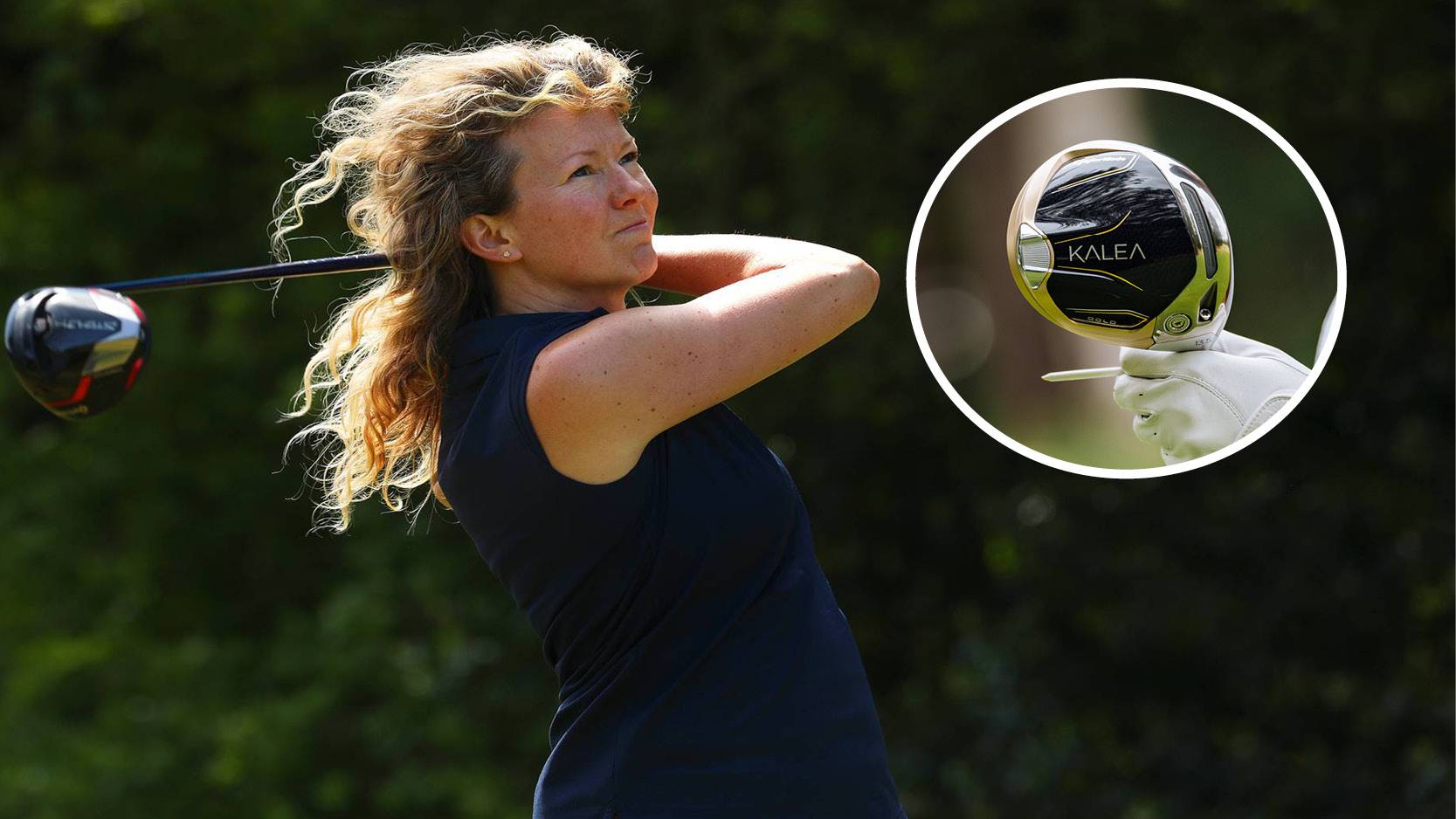 How Far Does The Average Female Club Golfer Hit Their Driver?
How Far Does The Average Female Club Golfer Hit Their Driver?We've looked at the data... Find out if you are hitting your driver an average distance
By Alison Root Published
-
 Tee Box Inequality: Why Aren't All Tees Rated For Women?
Tee Box Inequality: Why Aren't All Tees Rated For Women?Long-hitting female golfers are let down by tee ratings
By Katie Dawkins Published
-
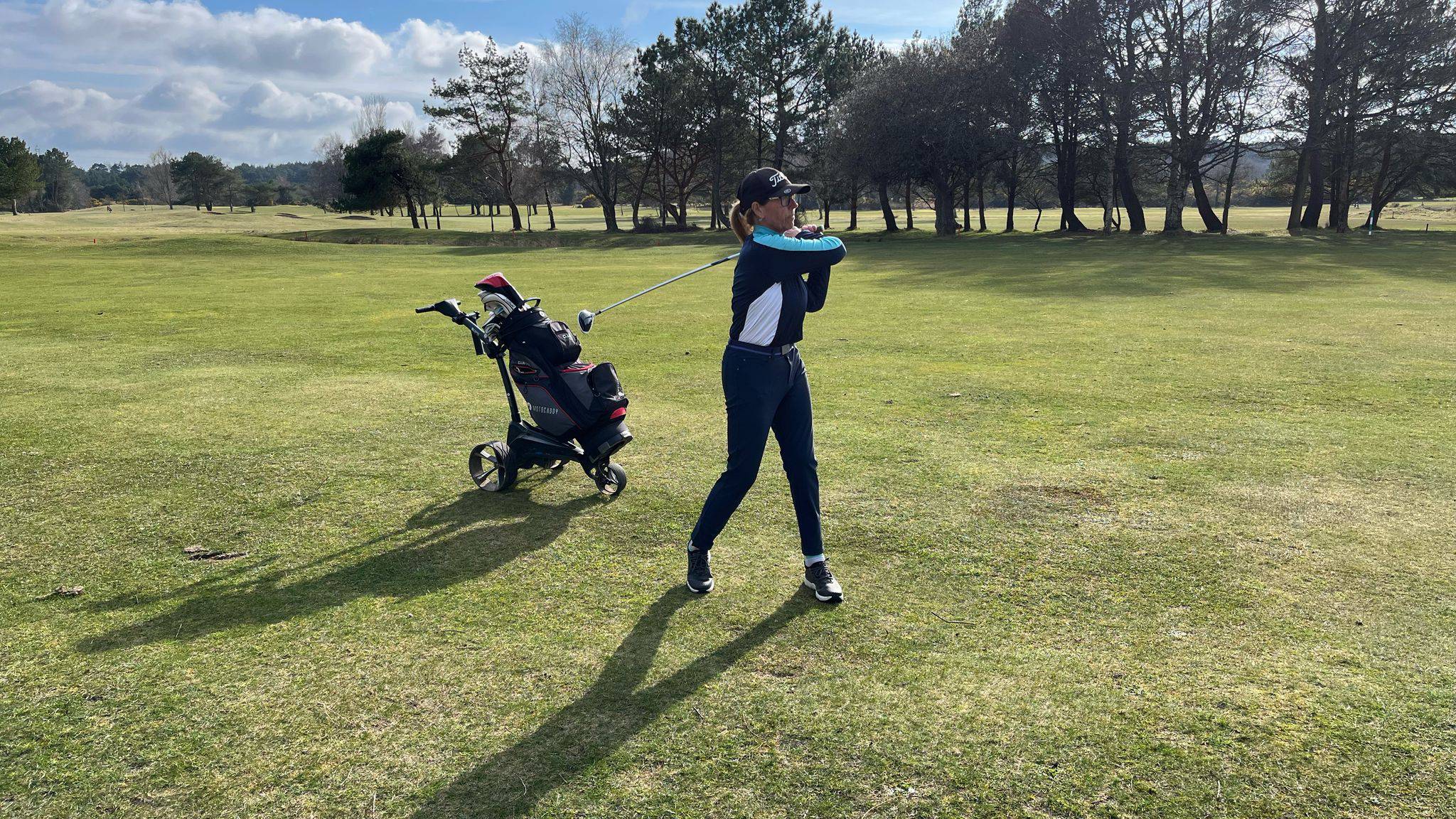 What I Learned From My First Golf Competition: The Unexpected Importance Of Preparation
What I Learned From My First Golf Competition: The Unexpected Importance Of PreparationPlaying in your first golf competition can be a daunting experience. Here are 5 tips to help you prepare for a stress-free round
By Carly Cummins Published
-
 I've Always Struggled To Create That Solid, Compressed Strike... Until I Fixed These 5 Key Moves
I've Always Struggled To Create That Solid, Compressed Strike... Until I Fixed These 5 Key MovesSingle figure golfer Jess Ratcliffe on how she has fixed her swing puzzle to deliver crisp shots
By Jess Ratcliffe Published
-
 Fix These 7 Common Mistakes And You'll Be On The Path To Lower Scores
Fix These 7 Common Mistakes And You'll Be On The Path To Lower ScoresPGA Professional Emma Booth on how to fix the mistakes all high handicappers make
By Emma Booth Published
-
 ‘It’s About Perception, Not Rules. Women Are Allowed To Wear A Lot More Than Men At Most Golf Courses’ - Mia Baker On Golf's Dress Code
‘It’s About Perception, Not Rules. Women Are Allowed To Wear A Lot More Than Men At Most Golf Courses’ - Mia Baker On Golf's Dress CodeContent creator and presenter Mia Baker on why changing mindsets is key to building a more inclusive golf community
By Alison Root Published